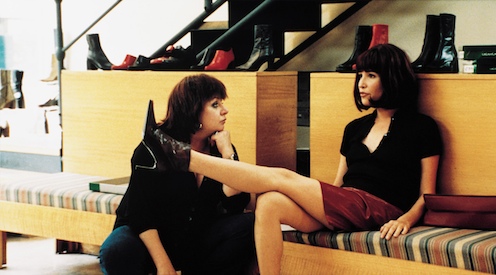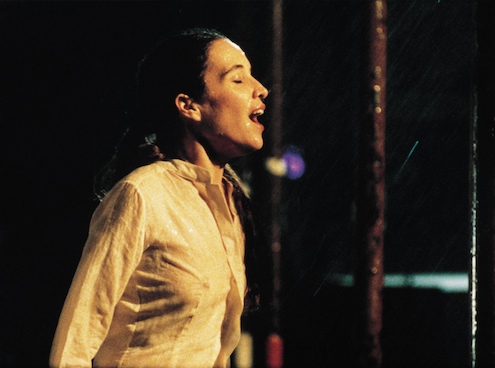Alila
Full Description
Against the backdrop of a crowded apartment block in a working-class Tel Aviv neighborhood, the turbulent and often poignant lives of twelve characters converge: a pair of illicit lovers, a divorced couple whose son has gone AWOL from the army, the ex-wife’s younger boyfriend, an elderly Holocaust survivor, illegal foreign workers, a half-crazed policewoman, and a rather strange man with a dog. In his latest film, a visually powerful ensemble
drama, renowned Israeli director Amos Gitai brings us a microcosm of Israeli society in unusually intimate -- nearly claustrophobic -- detail.
As in Gitai’s past films (Kadosh, Kippur, Kedma), the political situation is still never far from the surface in the day-to-day personal struggles of the characters. The film begins and ends with the predicament of the divorced couple’s son, who does not wish to serve in his Israeli combat unit. In the background, we hear the ever-present reports of terrorism and polarizing election speeches on car and home radios, and observe a ubiquitous undercurrent of discrimination against Arabs, foreign workers, and Mizrahi Jews.
The alternating beauty and seediness of Tel Aviv, the conflict between duty and freedom, human vulnerability and survival, all come together in an environment of balagan, the Hebrew word meaning "disorder," to be redeemed in the end by new understandings.
Alila is adapted from the novel Returning Lost Loves by Yehoshua Kenaz, and was nominated for the prestigious Golden Lion at the Venice International Film Festival.
Filmmaker Bio(s)
For over 20 years, Amos Gitai has brought to the screen images of the Jewish Diaspora and Israeli life alike. Employing both documentary and fictional styles, Gitais uses the camera to reveal history in all its contradictions and ambivalence.
He challenges us, the audience, to scrutinize history anew. Using landscape as a pictorical reference, Gitai traverses time and space to posit not merely a personal experience but a universal one that speaks of migration, struggle and alienation.
In 1973, during the Yom Kippur War, a Red Cross helicopter Gitai was in was shot down by Syrian forces. Following this, Gitai began using his camera as a means of recording and questioning the historical and political events around him. Both his documentaries and his dramatic films present a brutally honest reality, one bejeweled with political conflict, personal plight and a search for meaning. It is a reality that we recognize both as individuals and as members of the larger society.
Amos Gitai was born in Haifa in 1950. Between 1971 and 1975, Amos Gitai studied architecture in the Israel Institute of Technology, and also created his first 8- and 16-mm films. He continued his architecture studies at the University of California in Berkeley where he specialized in the theory of vernacular architecture, and received his Ph.D. in 1986.
In 1977 he began working for Israeli television, where he made several documentaries. After two of his films, Political Myths and House, were censored by the TV authorities, and when Field Diary, shot shortly before and during the Lebanon War, met with much hostility, Gitai moved in 1982, to Paris. From Paris, Gitai continued studying themes of exile, emigration and geography, creating films exceeding the bounds of traditional genre defitions of narrative.
Director(s)
Country(ies)
Language(s)
w/English Subtitle
Release Year
Festival Year(s)
Running Time
123


